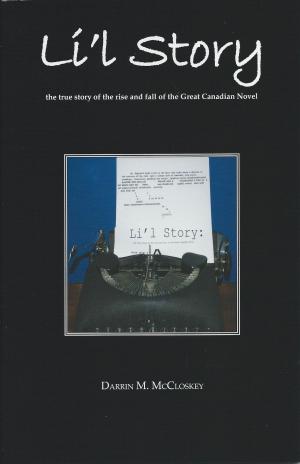| Author: | William Powers | ISBN: | 9781623090173 |
| Publisher: | BookBaby | Publication: | March 23, 2012 |
| Imprint: | Language: | English |
| Author: | William Powers |
| ISBN: | 9781623090173 |
| Publisher: | BookBaby |
| Publication: | March 23, 2012 |
| Imprint: | |
| Language: | English |
Half of the story is set in Good Samaritan House, a soup kitchen in Manhattan where Dom Gregory goes on a sabbatical to experience firsthand how the unexpected windfall the monks received might be used--this is a radical departure from his quiet monastic life of the past 20-plus years. After struggling with what to do with the inheritance, the abbot holds a meeting of the monks that fails to find a consensus on what to do with the $25 million, so Dom Gregory meets with Jerome Cardinal Mazur to discuss the dilemma. Cardinal Mazur, as urbane and wise in his world, the city, as Dom Gregory is unassuming and wise in his—the monastery where he and 45 monks live in seclusion in order to be closer to God without distractions. The Cardinal suggests an unusual solution to the monk’s predicament: take time away from the abbey and see up-close possible ways to share the money within the confines of the Church. Indeed, the Cardinal knows of a soup kitchen ‘that owes him a favor,’ so the abbot agrees to spend an indefinite amount of time volunteering in the Good Samaritan House, a soup kitchen in New York’s lower east side. Chapters 10-17 are set in Manhattan, and are a considerable departure from the placidity of St. Marks. A local church the abbot discovers (the Church of Our Saviour on Park and 38th), and the Cloisters (an adjunct of the Met) make his stay in the city much more comfortable than it might have been. After a few weeks, Dom Gregory returns to St. Marks after living the antithesis of life at the abbey, and seeing up close the life he was missing. The novel ends with Chapter 18, when the story returns to the Trappist Monastery and one of his first tasks is to advise a brother who cannot decide if he is wasting his life. Chapter-to-Chapter outline: Chapter 1 “Why Did You Become a Monk?” reveals the heart of the story: what is Dom Gregory, who has control of the monks at St. Marks that all take a vow of poverty, going to do with $25,000,000 that the community recently inherited. [Included] Chapter 2: ‘But Nobody Ever Really Thinks about Money, Dom Gregory’ has a full portrait of the abbot, Dom Gregory, and his tete-a-tete with an attorney, Paul Carroll, who represents the estate that left the monks the twenty-five million dollars. It is also a mildly humorous dichotomy of two very divergent views on how wealth can (or should) be used. Chapter 3: ‘All Things Pass; God Never Changes’ is a foray into the fantasy aspect of fiction. As the story advances and Dom Gregory realizes the pressure an extraordinary gift can bring to the placid community and himself in particular. The strain is evident in unexpected ways, and while he is falling asleep Dom Gregory levitates—or does he dream he levitated? Chapter 4: ‘Did Mona Lisa Wet Herself?’ is a humorous interlude that shifts the story to a Manhattan theater not far from the Good Samaritan House. Jennifer Scott is in the spotlight of a Performance Art spectacle: she sits on a toilet center stage having an unusual give-and-take chat with the audience while she waits until she defecates on stage in public—which will conclude her performance. Chapter 5: in ‘Heroin Sucks’ Phil Briley, an artist who lives in the Good Samaritan House, is the focus of the second NY chapter before the novel returns to the abbey. The chapter’s title comes from the conclusion Briley draws after answering questions of the soup kitchen’s founder, Grace Cullen. I modeled that character, by the way, on Dorothy Day (co-founder of the Catholic Worker), whom I had the good fortune of meeting. ‘Heroin Sucks’ is also one of the strongest—for description—chapters in the book. Etc., etc.
Half of the story is set in Good Samaritan House, a soup kitchen in Manhattan where Dom Gregory goes on a sabbatical to experience firsthand how the unexpected windfall the monks received might be used--this is a radical departure from his quiet monastic life of the past 20-plus years. After struggling with what to do with the inheritance, the abbot holds a meeting of the monks that fails to find a consensus on what to do with the $25 million, so Dom Gregory meets with Jerome Cardinal Mazur to discuss the dilemma. Cardinal Mazur, as urbane and wise in his world, the city, as Dom Gregory is unassuming and wise in his—the monastery where he and 45 monks live in seclusion in order to be closer to God without distractions. The Cardinal suggests an unusual solution to the monk’s predicament: take time away from the abbey and see up-close possible ways to share the money within the confines of the Church. Indeed, the Cardinal knows of a soup kitchen ‘that owes him a favor,’ so the abbot agrees to spend an indefinite amount of time volunteering in the Good Samaritan House, a soup kitchen in New York’s lower east side. Chapters 10-17 are set in Manhattan, and are a considerable departure from the placidity of St. Marks. A local church the abbot discovers (the Church of Our Saviour on Park and 38th), and the Cloisters (an adjunct of the Met) make his stay in the city much more comfortable than it might have been. After a few weeks, Dom Gregory returns to St. Marks after living the antithesis of life at the abbey, and seeing up close the life he was missing. The novel ends with Chapter 18, when the story returns to the Trappist Monastery and one of his first tasks is to advise a brother who cannot decide if he is wasting his life. Chapter-to-Chapter outline: Chapter 1 “Why Did You Become a Monk?” reveals the heart of the story: what is Dom Gregory, who has control of the monks at St. Marks that all take a vow of poverty, going to do with $25,000,000 that the community recently inherited. [Included] Chapter 2: ‘But Nobody Ever Really Thinks about Money, Dom Gregory’ has a full portrait of the abbot, Dom Gregory, and his tete-a-tete with an attorney, Paul Carroll, who represents the estate that left the monks the twenty-five million dollars. It is also a mildly humorous dichotomy of two very divergent views on how wealth can (or should) be used. Chapter 3: ‘All Things Pass; God Never Changes’ is a foray into the fantasy aspect of fiction. As the story advances and Dom Gregory realizes the pressure an extraordinary gift can bring to the placid community and himself in particular. The strain is evident in unexpected ways, and while he is falling asleep Dom Gregory levitates—or does he dream he levitated? Chapter 4: ‘Did Mona Lisa Wet Herself?’ is a humorous interlude that shifts the story to a Manhattan theater not far from the Good Samaritan House. Jennifer Scott is in the spotlight of a Performance Art spectacle: she sits on a toilet center stage having an unusual give-and-take chat with the audience while she waits until she defecates on stage in public—which will conclude her performance. Chapter 5: in ‘Heroin Sucks’ Phil Briley, an artist who lives in the Good Samaritan House, is the focus of the second NY chapter before the novel returns to the abbey. The chapter’s title comes from the conclusion Briley draws after answering questions of the soup kitchen’s founder, Grace Cullen. I modeled that character, by the way, on Dorothy Day (co-founder of the Catholic Worker), whom I had the good fortune of meeting. ‘Heroin Sucks’ is also one of the strongest—for description—chapters in the book. Etc., etc.















